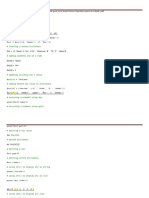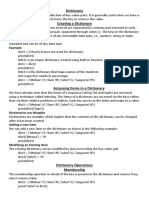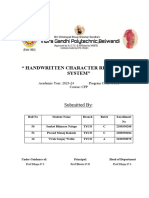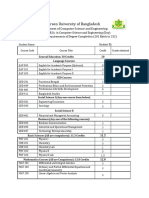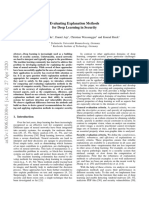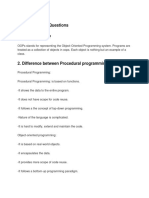0% found this document useful (0 votes)
13 views8 pagesAssignment (Week 1)
The document contains a series of Python exercises focused on various programming concepts including temperature conversion, list manipulation, class creation, and dictionary usage. It demonstrates input handling, calculations, and the creation of objects, as well as basic data structures like tuples and lists. Each exercise provides code snippets that illustrate the implementation of these concepts.
Uploaded by
Nandar LwinCopyright
© © All Rights Reserved
We take content rights seriously. If you suspect this is your content, claim it here.
Available Formats
Download as PDF, TXT or read online on Scribd
0% found this document useful (0 votes)
13 views8 pagesAssignment (Week 1)
The document contains a series of Python exercises focused on various programming concepts including temperature conversion, list manipulation, class creation, and dictionary usage. It demonstrates input handling, calculations, and the creation of objects, as well as basic data structures like tuples and lists. Each exercise provides code snippets that illustrate the implementation of these concepts.
Uploaded by
Nandar LwinCopyright
© © All Rights Reserved
We take content rights seriously. If you suspect this is your content, claim it here.
Available Formats
Download as PDF, TXT or read online on Scribd
/ 8
